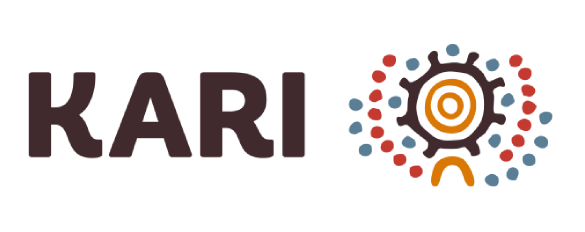As the Head of Culture at KARI, Troy Dargan says NAIDOC Week holds profound significance both personally and professionally. This annual celebration of Aboriginal and Torres Strait Islander history, culture, and achievements resonates deeply with me for several reasons:
1. Cultural Pride and Identity:
NAIDOC Week is a time to honour and take pride in our rich cultural heritage. It provides a platform for us to showcase the diverse and vibrant traditions that have been passed down through generations. Celebrating our culture reinforces my sense of identity and belonging, reminding me of the strength and resilience of our ancestors.
2. Education and Awareness:
This week is crucial for raising awareness about the history and contributions of First Nations peoples. It serves as an educational opportunity for both Indigenous and non-Indigenous Australians to learn about our shared history, including the injustices faced by our communities. By promoting understanding and empathy, NAIDOC Week helps bridge gaps and raises reconciliation.
3. Community Empowerment:
NAIDOC Week is a celebration of community achievements and successes. It’s a time to recognise and honour the efforts of individuals and groups who work tirelessly to improve the lives of Aboriginal and Torres Strait Islander people. Being part of these celebrations inspires and motivates me to continue contributing to the betterment of our communities.
4. Promoting Unity and Inclusivity:
The week-long festivities provide an opportunity to bring together people from all walks of life. It’s a time to celebrate our diversity and promote inclusivity, reminding us that we are all part of a larger community. NAIDOC Week nurtures a sense of unity and encourages collaboration between Indigenous and non-Indigenous Australians.
How Community Members and Non-Indigenous People Can Get Involved
NAIDOC Week is not just for Aboriginal and Torres Strait Islander people; it’s an inclusive celebration that invites everyone to participate and learn. Here are some ways community members and non-Indigenous people can get involved:
1. Attend Events and Celebrations:
Participate in local NAIDOC Week events such as cultural performances, art exhibitions, community gatherings, and workshops. These events offer a chance to experience and appreciate Aboriginal and Torres Strait Islander culture firsthand.
2. Support Indigenous Businesses and Artists:
Purchase goods and services from Indigenous-owned businesses and support local Aboriginal and Torres Strait Islander artists. This helps to promote economic growth within our communities and ensures that our cultural practices continue to thrive.
3. Educate Yourself and Others:
Take the time to learn about the history, cultures, and contributions of First Nations peoples. Share this knowledge with your friends, family, and colleagues to help spread awareness and understanding. The best way to learn about Aboriginal culture, customs and history is to sit and listen to Aboriginal people.
4. Engage in Community Service:
Volunteer your time or skills to support Indigenous community projects or organizations. Your involvement can make a significant difference and help build stronger, more resilient communities.
5. Advocate for Indigenous Rights:
Use your voice to advocate for the rights and interests of Aboriginal and Torres Strait Islander peoples. Support policies and initiatives that aim to address inequalities and promote justice for First Nations communities.
6. Reflect and Acknowledge
Take a moment to reflect on the history and ongoing impacts of colonization. Acknowledge the traditional custodians of the land where you live and work, and pay respect to their elders past and present. Understanding and acknowledging this history is a crucial step towards reconciliation.
NAIDOC Week is a powerful reminder of the rich cultural tapestry that forms the foundation of our nation. By getting involved and showing support, community members and non-Indigenous people can contribute to a more inclusive, respectful, and united Australia.
Troy Dargan, Head of Culture – KARI Foundation

